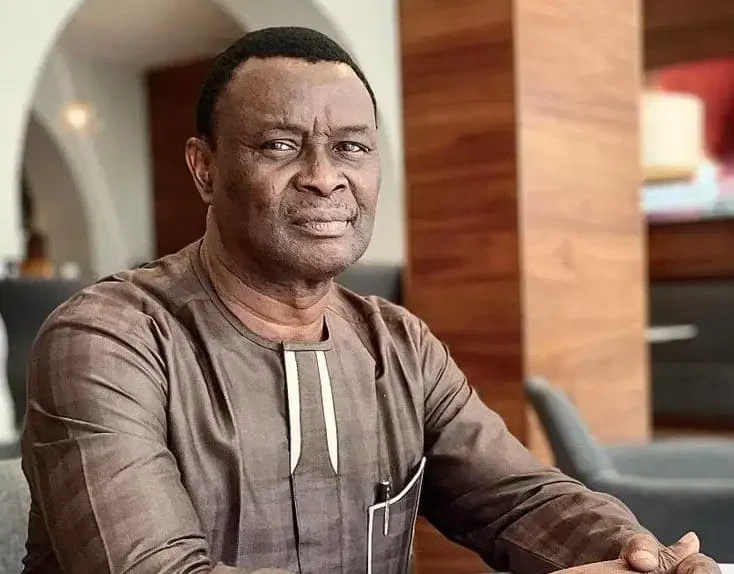• Nigeria spends 225% of revenue in 2023 as deficit rises to N13.5tr
• FG services debt with N8.56 trillion in 2023
• Transport, agric sectors drag as country grows GDP by 3.19% in Q2 2024
• GDP growth blind to economic reality, says Onyekpere
• Experts caution govt against frivolous spending, corruption
Though President Bola Tinubu hailed the latest report by the National Bureau of Statistics (NBS) on the state of the economy, which saw the country’s Gross National Product (GDP) posting new growth, there are concerns about the economic reality on the ground, especially as it relates to high inflation and fiscal indiscipline within the administration.
According to NBS, the real GDP grew by 3.2 per cent year-on-year in Q2, higher than the 2.51 per cent recorded in the same period of 2023.
After another report on declining food and headline inflation, the latest report affirmed that the economy is on the right trajectory and the path to recovery, according to a statement made available to newsmen by Special Adviser to the President on Information and Strategy, Bayo Onanuga.
“As the President said in his August 4, 2024 national broadcast, our economy is recovering. Sooner than later, Nigerians will begin to feel, see and enjoy the impact of his administration’s economic re-engineering efforts.
“We want to reiterate that this government will continue to work assiduously to rekindle Nigerians’ hope and confidence. Tinubu is working to build a solid and resilient economy,” Onanuga said.
He quoted the President as urging Nigerians to retain their faith in the government and not allow themselves to be swayed by naysayers’ intent in undermining his reforms for their selfish ends.
Analysts at the Financial Derivatives Company (FDC) had earlier predicted that Q2 ’24 GDP will show a 3.16 per cent modest increase; the yearly average likely at 3.07 per cent, in line with the International Monetary Fund’s (IMF) revised projection.
FOR stakeholders however, unchecked corruption, wasteful spending, unremitted revenues by ministries, departments and agencies and debt servicing may have caused the Federal Government to record N13.5 trillion in deficit after spending 225 per cent of its revenue in 2023.
They also argued on the need to embrace fiscal discipline and further drive inflation lower, with the impact felt by people at the lowest rung of the ladder.
The 2023 Fiscal Accounts Report of the Accountant General of the Federation, which revealed the 225 per cent spending explained that while the government generated revenue of N5.99 trillion in 2023, it spent N19.50 trillion thereby recording a deficit of N13.50 trillion, which amounted to 225 per cent of the total revenue.
A further breakdown of the government’s financial standing also showed that the country spent a whopping N8.56 trillion or 43.9 per cent of the budget to service its debt in 2023.
The country also incurred a fiscal deficit of N13.5 trillion or 225 per cent from spending N19.5 trillion, three times more than its total revenue of N5.99 trillion in 2023.
Citing the 2023 Fiscal Accounts Report of the Accountant General of the Federation, BudgIT, a non-governmental organization (NGO) on its X handle yesterday, said that the Federal Government made revenue of N5.99 trillion and spent N19.50 trillion, recording a deficit of N13.50 trillion.
The organisation noted that the government spent more than three times what it earned in revenue last year.
Giving details of the revenue, the NGO group said N3.80 trillion of the revenue came from the Federation Account Allocation Committee (FAAC) while the Federal Government’s share of independent revenue brought in N1.98 trillion.
The Federal Government’s share of the Federation Account contributed N2.39 trillion, exchange rate differences were N715.75 billion, while value-added tax (VAT) generated N441.87 billion.
“While the government’s revenues are swelling, a chunk of the earnings are gulped through debt servicing, leaving the government with a pittance to meet up with its fiscal responsibilities,” BudgIT said, adding that debt servicing accounted for 43.9 per cent of the budget at N8.56 trillion — the largest single expense.
BudgIT also stated that non-debt spending took up 27.8 per cent at N5.42 trillion, while capital expenditure was 23 per cent at N4.49 trillion.
“Of the money spent in 2023, capital expenditure, which includes investments in infrastructure projects, construction of schools or hospitals got a paltry N4.49 trillion.
“A significant portion of government spending was directed towards debt servicing, surpassing the revenue generated. As a result, the government continues to drift away from fiscal responsibility by borrowing more than it earns, resulting in a deficit of N13.50 trillion,” BudgIT stressed.
MEANWHILE, the NBS report showed that the 3.19 per cent growth rate is higher than the 2.51 per cent recorded in the second quarter of 2023 and higher than the first quarter of 2024 growth of 2.98 per cent.
It said the performance of the GDP in the second quarter of 2024 was driven mainly by the Services sector, which recorded a growth of 3.79 per cent and contributed 58.76 per cent to the aggregate GDP.
The agriculture sector, the NBS said declined to 1.41 per cent, from the growth of 1.50 per cent recorded in the second quarter of 2023. The surprise growth was recorded by the industry sector, which grew by 3.53 per cent, an improvement from -1.94 per cent recorded in the second quarter of 2023.
The transport sector, according to NBS, also recorded a deficit, falling from 3.33 per cent in Q1 to -13.53 per cent in Q2, 2024. Precisely road transport growth also declined from 5.58 per cent in Q1 to -15.88 per cent three months, which revealed the challenges in the transportation sector, including bad roads, insecurity and the jump in the price of petrol since the beginning of 2024.
The report noted that in terms of share of the GDP, the industry and services sectors contributed more to the aggregate GDP in the period under review, compared to the corresponding quarter of 2023.
“In the quarter under review, aggregate GDP at basic price stood at N60.93 trillion in nominal terms. This performance is higher when compared to the second quarter of 2023, which recorded aggregate GDP of N52.1 trillion, indicating a year-on-year nominal growth of 16.94 per cent,” the report said.
The Lead Director, of the Centre for Social Justice, Eze Onyekpere, who decried the rising debt amid splashing cash on frivolous items, declared that there is nothing to celebrate as the GDP growth is blind to the economic reality of the Nigerian people.
He explained: “When the year-on-year growth is juxtaposed with population growth, it will be clear that there is nothing much to celebrate. The baseline from which growth is calculated is too low and any negative movement could simply mean a deviation from Stone Age economic description. For the industrial sector, with all the challenges from the energy crisis, forex issues, raw materials, to inflation, the growth demonstrates the resilience of the sector, and the ‘never give up spirit’ of Nigerians because it was a development against the odds of all official policies, which were meant to drag it down.”
He charged the NBS to ensure that the methodology used in arriving at the GDP growth details is robust.
On his part, a former chairman Chartered Institute of Taxation of Nigeria (CITN), FCT branch, Dr Benjamin Ogbeide, said the debt issue is not one anyone should be proud of, saying, “How do you explain the huge sum expended on debt servicing? Our revenue is low, but our expenses are rising by the day, which is why the government keeps borrowing and borrowing.”
He insisted that for Nigeria to attain a growth level that will impact the standard of living of Nigerians, the government must shore up the revenue the country is generating while a deliberate effort is made to curtail debt and government spending, especially on officials as well as National Assembly members.
His words: “We are not a productive economy. The government should encourage manufacturers by providing a friendly environment and checking insecurity so that farmers can go back to their farms. They have been promising that the Port Harcourt refinery will start production, if that happens, it will help us generate more revenue.
“But more importantly, we need to cut down the cost of governance. This administration has the highest number of ministers, they are buying a new Presidential jet and building the Vice President’s residence with billions of naira, which was even borrowed. It is annoying.”
An investment banker, Tolulope Alayande, said the report is not unexpected considering the available information in the public space.
He argued that distribution of N160 million cars each to more than 450 lawmakers, building a new residence for the Vice President, and launching a student loans scheme when the government heavily depends on borrowing are all pointers to the way Tinubu is running the country.
Alayande added: “For me, I see no surprise in the report. With the exemption of student loan schemes, and credit opportunities for certain categories of workers, this government has been horrendous in managing the finances of this country. Yes, a few achievements have been made in increasing crude oil production, but it is not at a level that the government can afford to spend recklessly on items that are not needed. I think the government can be a bit more responsible.”
On his part, a professor of capital market at the Nasarawa State University, Uche Uwaleke, said the financial sector grew by 28.79 per cent is a demonstration that the GDP growth is detached from the productive sectors of the economy.
He said: “In my view, this identified growth pattern, weighted in favour of the services sector, is not healthy for a developing economy such as ours. Little wonder, economic growth does not appear inclusive reflecting in rising unemployment and poverty levels.
“It is time we reset this faulty economic structure, leveraging technology, in favour of the productive sectors – industry and agriculture.”
According to the NBS report, the growth rate in Q2 is also higher than the 2.98 per cent growth in Q1 2024.
The GDP’s performance in Q2 2024 was driven by the service sector, which recorded a growth of 3.79 per cent and contributed 58.76 per cent to the aggregate output, the report noted.
The agriculture sector reportedly grew by 1.41 per cent in contrast to the 1.50 per cent recorded in Q2 2023, while the industrial sector’s growth was 3.53 per cent, up from the -1.94 per cent recorded in Q2 2023.
NBS also reported that crude production grew to 1.41 million barrels per day, compared with 1.22mbpd a year earlier.
“We are confident that with the policies we have put in place, we expected production to rise to about two million barrels very soon,” Tinubu said.
In terms of share of the GDP, the industry and services sectors contributed more to the aggregate GDP in Q2 2024 compared to the corresponding quarter of 2023.
In the quarter under review, aggregate GDP at basic price stood at N60,930,000.58 in nominal terms. This performance is higher than Q2 2023, which recorded an aggregate GDP of N52,103,927.13, indicating a 16.94 per cent year-on-year nominal growth.

 2 months ago
130
2 months ago
130















 English (US) ·
English (US) ·